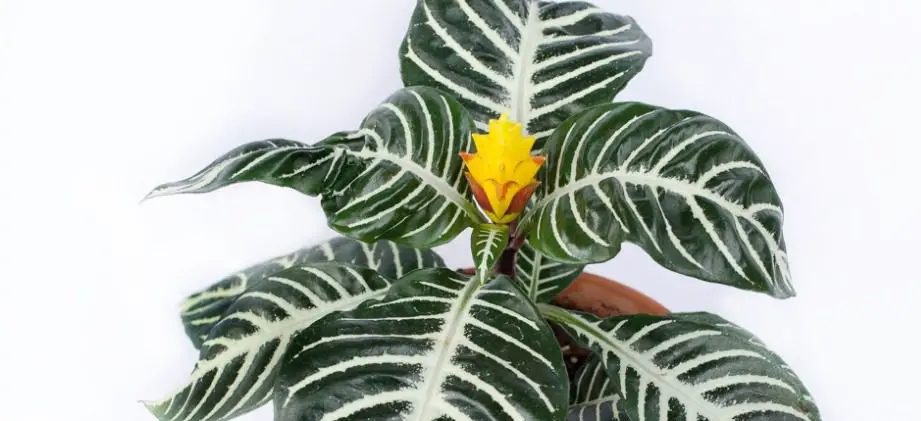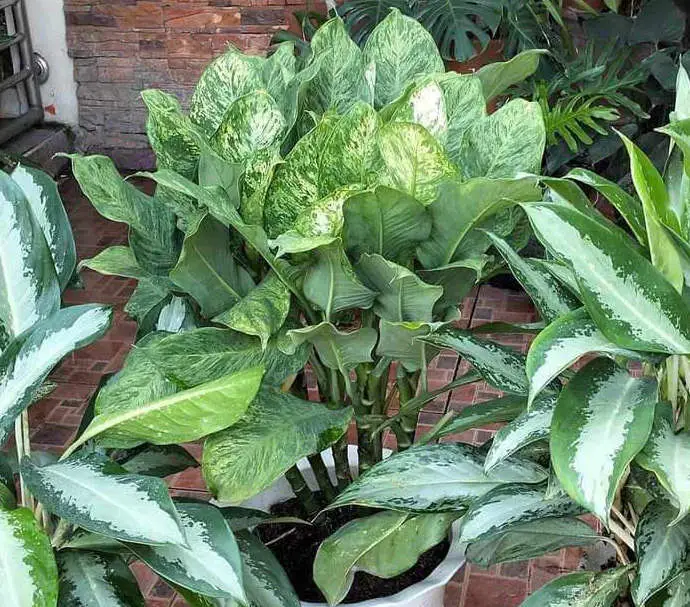Deer are herbivores and they will eat just about any type of vegetation that is available to them. But are Yungworts on the menu for these ravenous beasts? In this article, we’ll take a look at what deer like to eat and whether or not Yungworts are in danger of being eaten.
Do Deer Eat Lungworts?
Deer don’t tend to eat lungworts as they are not a very palatable plant for them. This is because lungworts have tiny hair-like structures on their leaves that can irritate a deer’s mouth and digestive system. However, if there is no other food available, deer may be forced to eat lungworts.
While they may not eat lungworts, deer can trample and damage the plant. This may be an accident while they are foraging for other food, or it could be done on purpose if the deer is trying to rub its antlers on something. Either way, this can cause problems for the plant and make it more susceptible to being eaten by predators or parasites.
How to Protect Lungworts from Deer?
To stop any damage that deer may cause to your lungworts, you can try a few different things.
1. Remove food sources
Deer will be attracted to your garden if there is something for them to eat. If you remove anything that they might find appealing, they will be less likely to come into your garden in the first place. This includes things like fruits, vegetables, and nuts.
By not planting these things in your garden, you can make it much less inviting for deer. They will likely just wander over to your neighbor’s garden instead where they can find something to eat.
Another food source that deer love is water. If you have a pond or other water feature in your garden, consider covering it or removing it altogether. This will make your garden much less attractive to deer.
2. Fencing
If you really don’t want deer in your garden, the best way to keep them out is by erecting a fence. Deer can jump pretty high, so your fence will need to be at least eight feet tall. It should also extend underground for about a foot or so to prevent other animals from digging their way under the fence.
Fencing is probably the best way to keep deer out of your garden, but it can be expensive and time-consuming to build a fence that is tall enough and strong enough to deter deer.
If you don’t want to go through the trouble of building a fence, you can try using netting or chicken wire around your plants. This will create a physical barrier that deer will have to contend with if they want to get to your plants.
I like this netting from Amazon as it’s easy to erect, affordable, and works incredibly well. This netting is also simple to remove and relocate if necessary, as it’s attached to a frame that you can set up in just a few minutes.
3. Hanging Baskets
Hanging baskets are another great way to protect your plants from deer. These baskets can be hung from trees, fences, or any other structure in your garden. Deer will have a hard time reaching the plants in these baskets, and they are also less likely to knock them over.
I like to use wire baskets with coco liner as they are durable and long-lasting. I also like that I can easily move them around my garden if I need to.
Hanging baskets are a great way to protect your plants, but they can be expensive. If you want to save some money, you can try using recycled materials like laundry baskets or buckets. Just make sure that whatever you use has drainage holes so that your plants don’t get waterlogged.
4. Deer Repellents
There are a variety of deer repellents on the market that you can use to keep deer away from your plants. These repellents work by either emitting a bad smell or taste, or by creating a physical barrier that deer don’t like.
I’ve had success using both spray-on and granular deer repellents. I like to use the granular repellents around the perimeter of my garden, and the spray-on repellents on plants that I really don’t want deer to eat.
You can make homemade deer repellents using ingredients like garlic, chili peppers, or soap. These repellents will work just as well as the store-bought ones, so have a look in your pantry and see what you can find.
5. Sprinklers
If you have a problem with deer eating your plants, you can try using a sprinkler system to deter them. Deer don’t like getting wet, so they will likely stay away from any areas that are being sprayed with water.
You can buy automatic sprinklers that will turn on and off at set intervals. This is a great option if you’re away from home during the day and can’t keep an eye on things.
Just be sure to position the sprinklers so that they are spraying the plants that you want to protect. You may need to experiment a bit to find the perfect spot, but it’s worth it to keep your plants safe from deer.
There are a variety of ways to keep deer out of your garden, but it’s important to remember that these animals are very adaptable. If you find that one method is no longer working, don’t hesitate to try something else. With a little trial and error, you’ll find the perfect solution for your garden.
Can Lungworts Be Used as Deer-Resistant Fencing?
Yes, lungworts can be used as deer-resistant fencing. These perennials are known for their dense, leathery leaves that make it difficult for deer to chew through. Lungworts also produce a strong smell that is off-putting to deer.
When planted along the perimeter of your garden, lungworts can create an effective barrier against these pesky animals. Lungworts also make a great addition to any garden, as they are low-maintenance and easy to care for.
Conclusion
There are a variety of ways to keep deer out of your garden. By using a combination of physical barriers, repellents, and deterrents, you can create an environment that is hostile to these animals. With a little trial and error, you’ll find the perfect solution for your garden.
Lungworts are generally safe from hungry deer, but other plants are not so lucky. If you find that your garden is being ravaged by deer, try one of the methods described above to keep these animals at bay. Your plants will thank you for it!
Tim is an avid gardener from the UK. He was the founder of PlantCarer.com from 2021 to Sep 2023. He sold PlantCarer.com to Aaron. He has since started his own business called Seed To Supper, which provides new gardeners all the materials you need in a box (pots, seeds, compost and instructions) to grow your own delicious and nutritious vegetables and herbs from start to finish – no garden required.







0 Comments